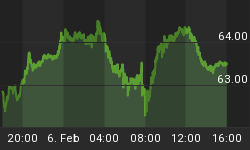London, better known as the financial capital of Europe, has also evolved into the undisputed tech capital of Europe. But this is a slippery slope thanks to Brexit: While venture capital (VC) firms are still hot on British tech, new capital isn’t necessarily hot on VC firms.
London tech firms have been attracting more VC funding since the decision to leave the EU than all other European cities combined. British tech firms have received five billion pounds ($6.7 billion) in venture capital funding since 2016, with 80 percent of that going to London, according to a study by London & Partners cited by Reuters.
That figure dwarfed monies received by other major European cities, including Paris (£565m) and Berlin (£456m).
European startups raised record levels of funding last year helped by a series of blockbuster deals and foreign investments:
• Japanese technology group Softbank led with €458 million financing of UK virtual simulation startup, Improbable;
• U.S. funds Fidelity and T Rowe Price combined for a $385 million investment in London-based takeaway food app, Deliveroo;
• Chinese ecommerce giant JD.com pumped up the figures with a $397 million investment in yet another London firm--luxury goods website Fartech.
And certain pockets of the industry have been attracting outsized interest: Artificial Intelligence (AI) startups in the continent raised €1.2 billion in 2017, more than double the previous year, while fintech drew the lion's share of investments with €4.35 billion, more than triple the previous year.
London has even been named the AI capital of Europe, with its tally of 758 AI companies more than the combined figure by its two closest rivals, Paris and Berlin.
Tech investors find London an attractive destination due to the city's prowess in cutting-edge technologies, including artificial intelligence, fintech and cybersecurity. U.S. tech giants like Amazon, Google and Facebook have increased their UK investments since the referendum.
Related: Silver Stocks Continue To Struggle
The tech boom has given the city a new face, including plenty of new jobs as well as digitally-fueled gentrification of older and grubbier suburbs like Shoreditch.
What Could Mess With The Tech Ecosystem?
VC firms themselves are struggling to attract new investments.
VC companies are considered a key component of the tech ecosystem because they help promising startups raise much-needed funds and advice from experienced investors. The rosy picture painted by those record investments, however, belies another growing problem-- European venture capital firms are having a hard time luring in new capital.
New research by PitchBook, cited by The Financial Times, has revealed that Europe VC firms raised €7.4bn in new capital in 2017--a good 25 percent lower compared to the prior year.
The decline has been attributed to growing uncertainty surrounding Brexit negotiations.
Despite huge sums raised by large VC firms such as London-based Balderton Capital, the total number of new funds still plunged to a 10-year low of just 54.

(Click to enlarge)
Source: The Financial Times
The tough fund-raising environment has come after two years of record amounts of money pouring into Europe's VC groups, driven by enthusiasm for the continent's tech sector and dovetailed with low interest rates that compelled insurance companies, pension funds and even family offices to hunt for higher returns.
Related: Tech Icon Predicts A Big Future For Ethereum
Ongoing uncertainty surrounding Brexit is, however, forcing large investors to delay their investments—a situation that’s starting to throttle the industry's lifeline. Businesses typically hate uncertainty, and this could end up hurting Europe's tech sector.
The EU has already voted to exclude the UK from the Galileo Satellite Navigation System and UK firms risk being shut out of other regional initiatives.
An even bigger risk is that the UK could increasingly find it harder to attract top talent from other countries, especially if post-Brexit immigration policies turn out to be harsher than currently existing ones.
By Alex Kimani for Safehaven.com
More Top Reads From Safehaven.com:
















